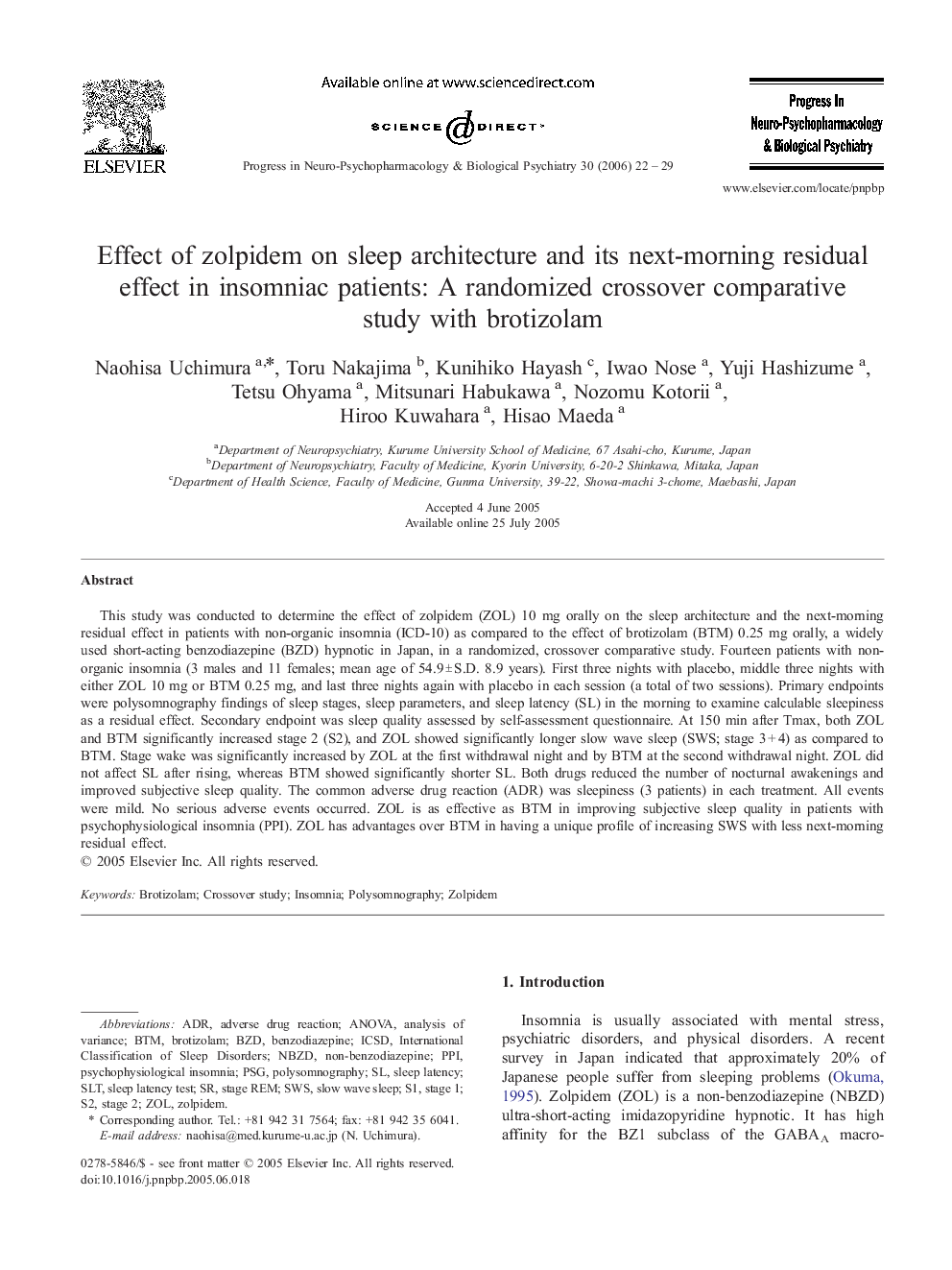| Article ID | Journal | Published Year | Pages | File Type |
|---|---|---|---|---|
| 2566438 | Progress in Neuro-Psychopharmacology and Biological Psychiatry | 2006 | 8 Pages |
This study was conducted to determine the effect of zolpidem (ZOL) 10 mg orally on the sleep architecture and the next-morning residual effect in patients with non-organic insomnia (ICD-10) as compared to the effect of brotizolam (BTM) 0.25 mg orally, a widely used short-acting benzodiazepine (BZD) hypnotic in Japan, in a randomized, crossover comparative study. Fourteen patients with non-organic insomnia (3 males and 11 females; mean age of 54.9 ± S.D. 8.9 years). First three nights with placebo, middle three nights with either ZOL 10 mg or BTM 0.25 mg, and last three nights again with placebo in each session (a total of two sessions). Primary endpoints were polysomnography findings of sleep stages, sleep parameters, and sleep latency (SL) in the morning to examine calculable sleepiness as a residual effect. Secondary endpoint was sleep quality assessed by self-assessment questionnaire. At 150 min after Tmax, both ZOL and BTM significantly increased stage 2 (S2), and ZOL showed significantly longer slow wave sleep (SWS; stage 3 + 4) as compared to BTM. Stage wake was significantly increased by ZOL at the first withdrawal night and by BTM at the second withdrawal night. ZOL did not affect SL after rising, whereas BTM showed significantly shorter SL. Both drugs reduced the number of nocturnal awakenings and improved subjective sleep quality. The common adverse drug reaction (ADR) was sleepiness (3 patients) in each treatment. All events were mild. No serious adverse events occurred. ZOL is as effective as BTM in improving subjective sleep quality in patients with psychophysiological insomnia (PPI). ZOL has advantages over BTM in having a unique profile of increasing SWS with less next-morning residual effect.
